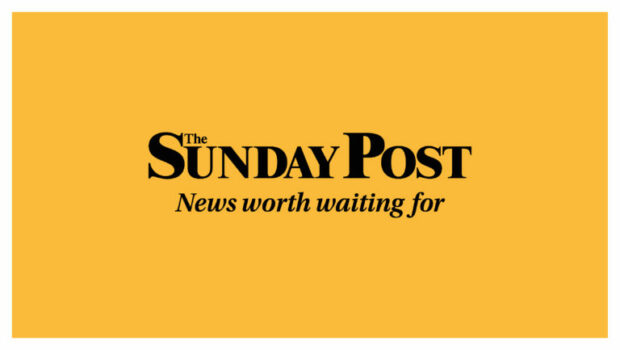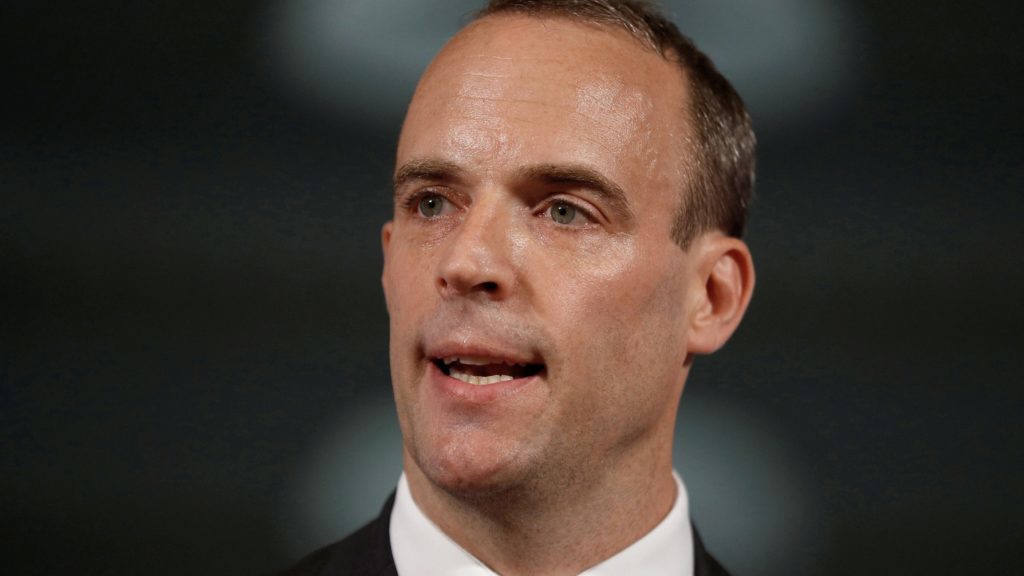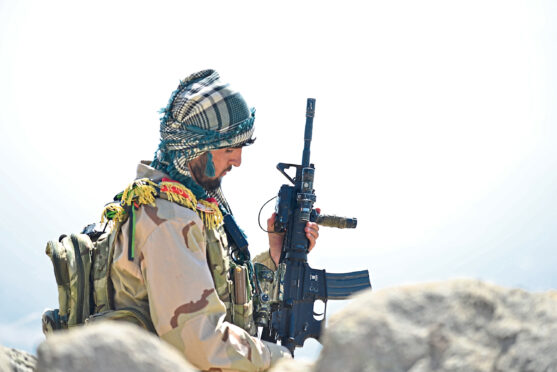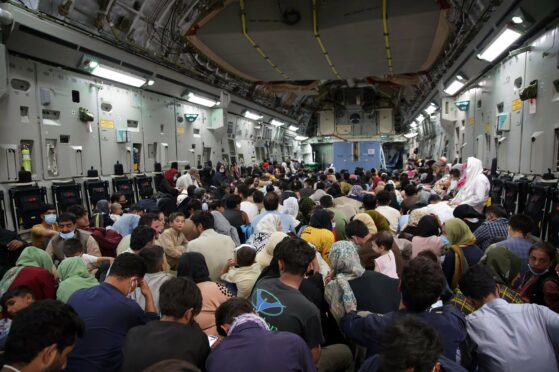
There is little left to be said after another week of fear and despair at Kabul airport.
Most of us have sunk into silence watching the horror unfold, as the hours hurtle by towards the last plane taking off, abandoning the Afghans below to the Taliban and their fate. It has been a hellish, dispiriting few days.
Criticism has, rightly, been directed westwards to the White House where Joe Biden was far too quick to accept his predecessor’s agreement with the Taliban; far too unthinking of the consequences; and far too slow to consult Nato allies with a moral obligation to the Afghans, who had helped them for 20 years but were now in clear and present peril as the militants swept back into the capital.
But the UK Government must, and not for the first time, explain its own litany of incompetence and failure.
Johnson found wanting
At times of such international conflagration, it is easy to feel our prime minister is an irrelevance when the shots seem to be called by a distant president and a resurgent Taliban.
However, Boris Johnson’s judgment, actions and commitment to, well, you know, governing has again been tested by the UK’s withdrawal from Afghanistan and has, again, been found wanting.
Dominic Raab was, of course, enjoying the five-star Amirandes hotel on Crete – a “sparkling boutique resort for the privileged and perceptive”– as Kabul fell, when the Foreign Secretary was too busy to call the Afghan government to discuss the safety of interpreters suddenly at risk of being killed for working with the UK forces.
He was eventually shamed into returning but, to be frank, most of the cabinet, and their boss, could have joined him in Greece without serious detriment to our evacuation effort. With the exceptions of our troops doing what they could in the chaos of Kabul and Ben Wallace, Defence Secretary and former Scots Guard, who has, at least, shown an understanding of both the gravity and urgency of unfolding events, the UK response has been too little and too late for far too many.
Speaking to us today, John Kerr, Lord Kerr of Kinlochard, former permanent under-secretary at the Foreign Office, head of the Diplomatic Service, and ambassador to the US, laments Johnson’s response last week, last month and over the last year.
Why, for one example, did the UK, unlike France, not understand Donald Trump’s deal with the Taliban was a clarion call to urgently begin evacuating UK citizens and Afghans, who worked for us?
How, for another, could Johnson on July 8 insist the Taliban, newly armed with £62 billion of bombs, guns, tanks and planes abandoned by the US in their rush to leave, had “no military route to power”.
Within days, experts were telling us of their real and escalating fears that the Taliban’s onslaught would end in Kabul sooner rather than later. And still our prime minister did nothing or, at least, so little that it might pass for nothing.
People can get used to anything, and we do, but, every so often, we get a sudden reminder our country – at least in our actions abroad – is being led by a man unfit for these critical times. That realisation can still have the power to shock us. It still should.

Enjoy the convenience of having The Sunday Post delivered as a digital ePaper straight to your smartphone, tablet or computer.
Subscribe for only £5.49 a month and enjoy all the benefits of the printed paper as a digital replica.
Subscribe




